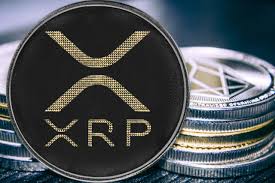ENS DAO delegates offer perspective on DAO governance and decentralized identity
Zhang and Rocco provides valuable insights into the perspectives of ENS DAO delegates on?DAO governance?and decentralized identity.

The Ethereum Name Service (ENS) is a decentralized naming system that maps human-readable names to machine-readable addresses on the Ethereum blockchain. ENS is managed by the ENS DAO, a DAO governance and decentralized identity that allows community members to participate in the governance of the protocol.
In a recent interview with Cointelegraph, two ENS DAO delegates, Victor Zhang, CEO of AlphaWallet, and Gregory Rocco co-founder Spruce, offered their perspectives on DAO governance and decentralized identity.
DAO governance
Zhang and Rocco both believe that DAO governance is a key innovation of the Web3 ecosystem. DAOs allow communities to come together and make decisions in a transparent and democratic way. This is in contrast to traditional organizations, which are often controlled by a small group of people.
Rocco said that he feels "a motivation to stay on top of everything for ENS and be on board and establish that social contract." He believes in "the future of ENS and support participation in user-controlled systems." He sees DAOs as "the first step towards enabling users to have more control over their identity and data."
Zhang said that he is excited about the potential for DAOs to "transform the way we organize and collaborate." He believes that DAOs can "create a more equitable and inclusive world."
Decentralized identity
Decentralized identity (DID) is another key innovation of the Web3 ecosystem. DIDs allow individuals to control their own identity data and share it with others on a permissioned basis. This is in contrast to traditional identity systems, which are often controlled by centralized entities.
Zhang and Rocco both believe that DIDs have the potential to revolutionize the way we interact online. DIDs can be used to create more secure and private online experiences. They can also be used to enable new types of applications, such as peer-to-peer payments and decentralized social networks.
Rocco said that he believes that DIDs are "essential to the future of the internet." He said that DIDs can "give people control over their own data and allow them to interact with others in a more secure and private way."
Zhang said that he is excited about the potential for DIDs to "transform the way we think about identity online." He believes that DIDs can "create a more equitable and inclusive world."
ENS and DAO governance
The ENS DAO is a prime example of how DAOs can be used to govern decentralized protocols. The ENS DAO allows community members to vote on proposals that affect the future of the protocol. This includes proposals for new features, funding, and partnerships.
Zhang said that he believes that the ENS DAO is "a great example of how DAOs can be used to govern decentralized protocols." He said that the ENS DAO is "transparent, democratic, and efficient."
Rocco said that he is "impressed with the way the ENS DAO has been governed so far." He said that the ENS DAO has "made some great decisions" and that he is "confident" in the ability of the community to govern the protocol in the future.
ENS and decentralized identity
ENS is also playing a role in the development of decentralized identity. ENS can be used to create and manage DIDs. This means that ENS users can control their own identity data and share it with others on a permissioned basis.
Zhang said that he is excited about the potential for ENS to play a role in the development of decentralized identity. He said that ENS can "make it easier for people to create and manage their DIDs."
Rocco said that he believes that ENS is "essential to the future of decentralized identity." He said that ENS can "provide a foundation for DIDs to be used in a variety of applications."
The interview with Zhang and Rocco provides valuable insights into the perspectives of ENS DAO delegates on DAO governance and decentralized identity. Both Zhang and Rocco believe that DAOs and DIDs have the potential to revolutionize the way we organize and interact online. They also believe that ENS is well-positioned to play a leading role in the development of both DAOs and DIDs.
What's Your Reaction?
















